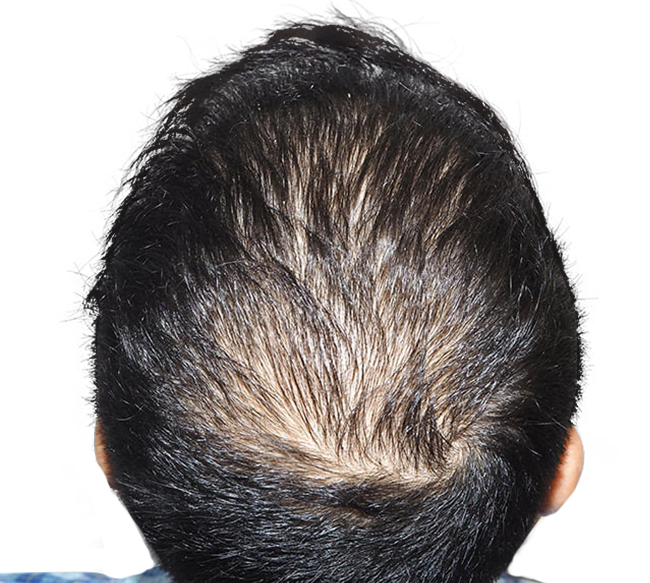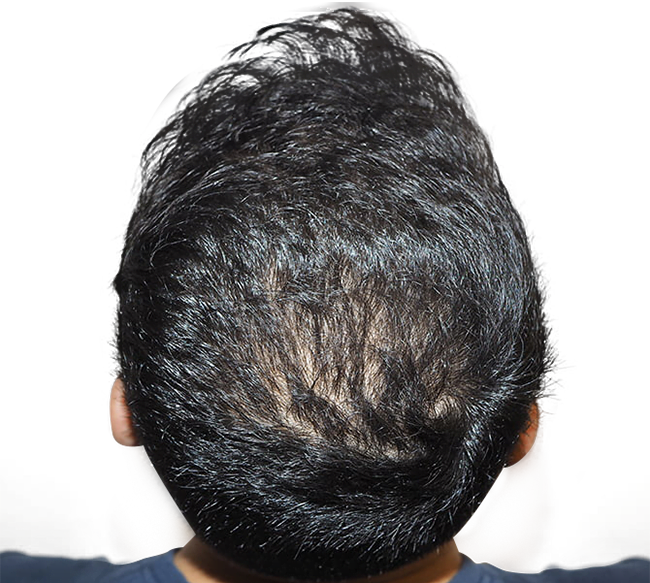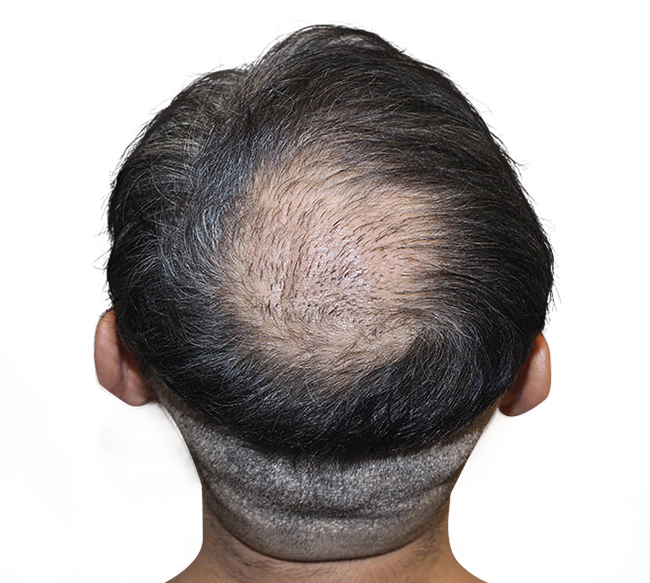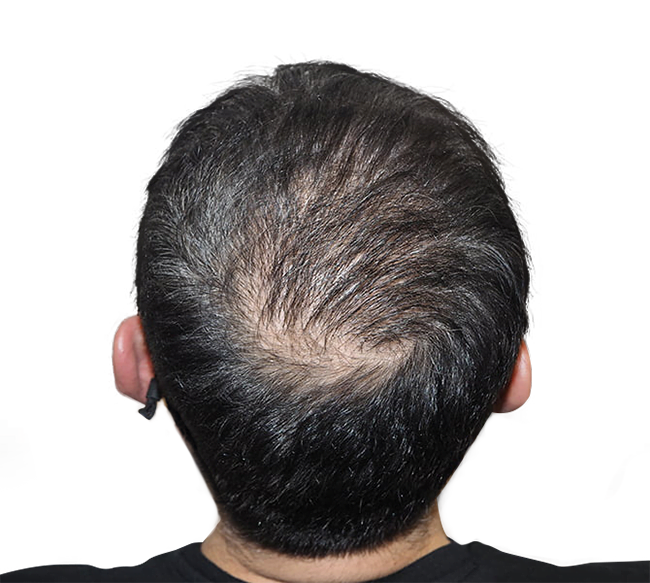WHAT TO EXPECT WITH A CROWN HAIR TRANSPLANT
Are you experiencing hair loss or balding at the crown area of your scalp? Don’t worry, you’re not alone. Fortunately, there are several great treatment options to help restore the natural look of your hair, one of which is a crown transplant. In this article, we’ll take a look at what this treatment is, what to expect before and after the procedure, and how to prepare.
What to Expect During a Crown Transplant
A crown hair transplant can be performed using follicular unit extraction (FUE) or follicular unit transplantation (FUT). Our highly skilled clinicians and their team of expert technicians perform these procedures in a clinic setting.
During FUE, specialized technology such as the WAW system, ATERA system, Ellis system, Cole FUE system, S.A.F.E. FUE System, or Robotic Hair Restoration is used to transfer hair grafts from the donor area to the crown area. There’s no visible scarring, no sutures, and minimal downtime. You’ll receive a local anesthetic to minimize any pain. The procedure is performed in one of our MAXIM Hair Restoration clinics and during your procedure. You can read a book, watch TV, or even take a nap. This procedure takes between six to eight hours.




FUT is another option for a crown hair transplant. You’ll receive local anesthesia for this technique as well. This technique allows us to transfer up to 4,000 grafts in a single session, resulting in a crown hair transplant with a higher survival rate, higher yield, and more grafts. A strip containing tissue and skin is taken from the back of the head or the donor area and then transferred to the area where you’re experiencing hair loss.
Each technique provides dense, natural-looking results within six months to a year of the procedure. You’ll achieve life-long results. Consult with one of the doctors at MAXIM Hair Restoration today to get started on a treatment plan that works for you.
How to Prepare for a Crown Hair Transplant
Preparing for your crown hair transplant is simple. You should eat a light breakfast the morning before your procedure, and a good night’s sleep the night prior is essential. You’ll need to avoid the following before your procedure:
- Aspirin, vitamin E, or other blood thinners for seven days before your procedure.
- No alcohol for 48 hours prior to your procedure.
- No caffeine the morning of your procedure.
If you’re over age 65, you may need written medical clearance from your primary or specialty care physicians. We’ll provide you with written pre-op instructions prior to your scheduled procedure. As always, feel free to reach out to us at MAXIM Hair Restoration with any questions you may have about hair restoration options.
What to Expect After a Crown Transplant
Following post-hair-transplant instructions is essential to obtain the natural-looking, dense hair results you want. After your procedure, our team will discuss what’s expected and the best ways to take care of your new hair, as well as the donor area. Recovery will also vary depending upon whether follicular unit transplantation or follicular unit extraction methods were used.
You can typically return to normal activities after 24 hours, though you should refrain from strenuous activities for up to seven days. There may be slight scabbing, but this will heal quickly. Take any prescribed medications as directed and avoid smoking and alcohol for up to 48 hours after.
Most recovery periods for MAXIM Hair Restoration patients go well, though you should watch out for signs of infection such as:
- Oozing or bleeding.
- Swelling.
- Fever.
If you develop any of these, please reach out to your provider for guidance.
What Causes Hair Loss at the Crown Area?
Several known causes contribute to hair loss at the crown area of the scalp. Any person of any gender and age can experience this, but it’s more common among men than women. Some of the conditions known to cause hair loss along the crown area include:
- Alopecia areata.
- Androgenetic alopecia
- Cicatricial alopecia.
- Telogen hair loss.
- Tinea capitis.
- Traction alopecia.
- Trichotillomania.
- Inflammatory scalp disorders and hair growth disorders.
Some of these conditions are better treated with medication or non-surgical hair restoration options. The only way to determine whether or not you would benefit from crown hair restoration and which treatment is best for you is to consult with one of the specialists at MAXIM Hair Restoration.
Who Is a Good Candidate for a Crown Transplant?
Various factors must be considered before proceeding with a crown hair transplant. Before proceeding with a crown hair transplant procedure, we must assess any hair loss that you may be experiencing at the frontal hairline as well as your donor area. Crown transplants utilize a significant number of grafts..
We also take into consideration your age. Hair loss can begin at any age, but hair transplantation should not be performed too early. Performing hair transplants too early may lead to issues with the progression of your hair loss. It’s important to understand where a client is in their hair loss journey in order to determine if an FUE transplant is right for them. Scheduling a visit with one of our specialists would be the best way to determine whether or not you’re a good candidate for a crown transplant.
Reach Out to MAXIM Hair Restoration
If you’re experiencing hair loss and are ready to do something about it, please don’t hesitate to reach out to the team of experts at MAXIM Hair Restoration today. You can reach us online for a quick assessment or even to schedule an appointment, or you can give us a call at 802-370-3227. Our experienced physicians will provide you with an accurate treatment plan, discuss payment options, and answer all of your questions at your consultation. The team at MAXIM Hair Restoration looks forward to giving you your hair and confidence back.

